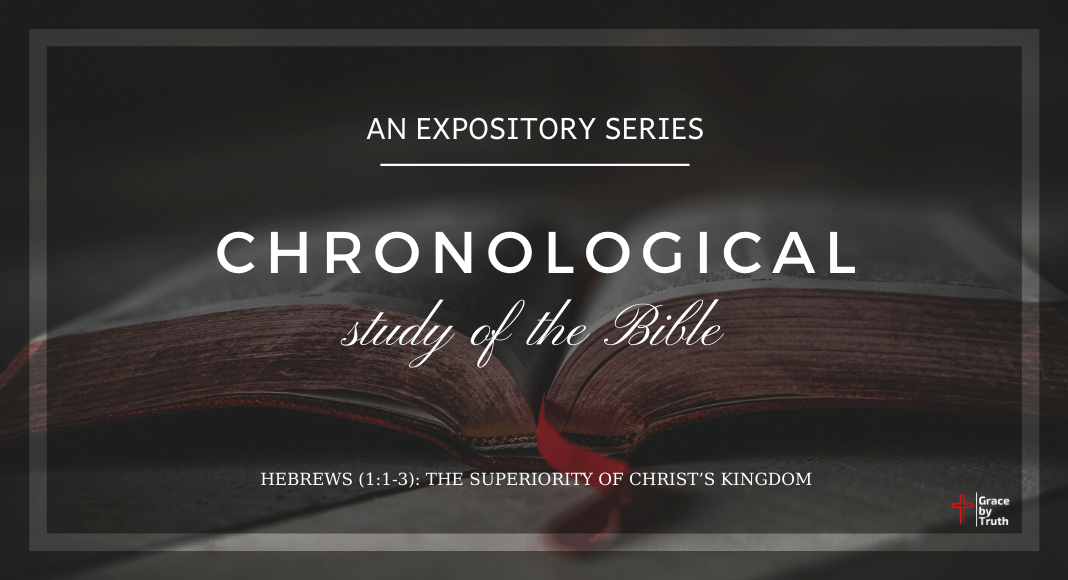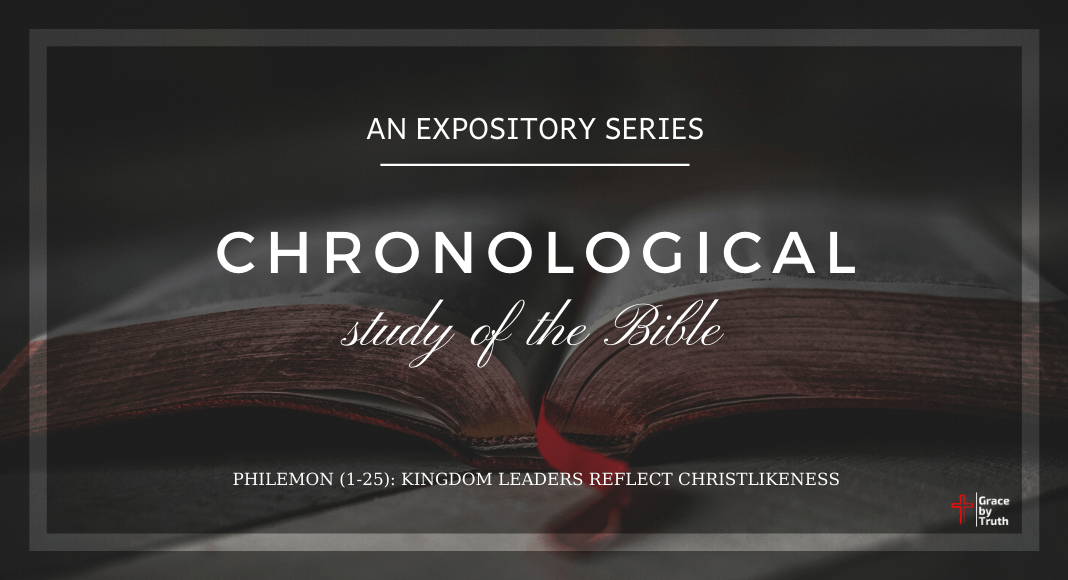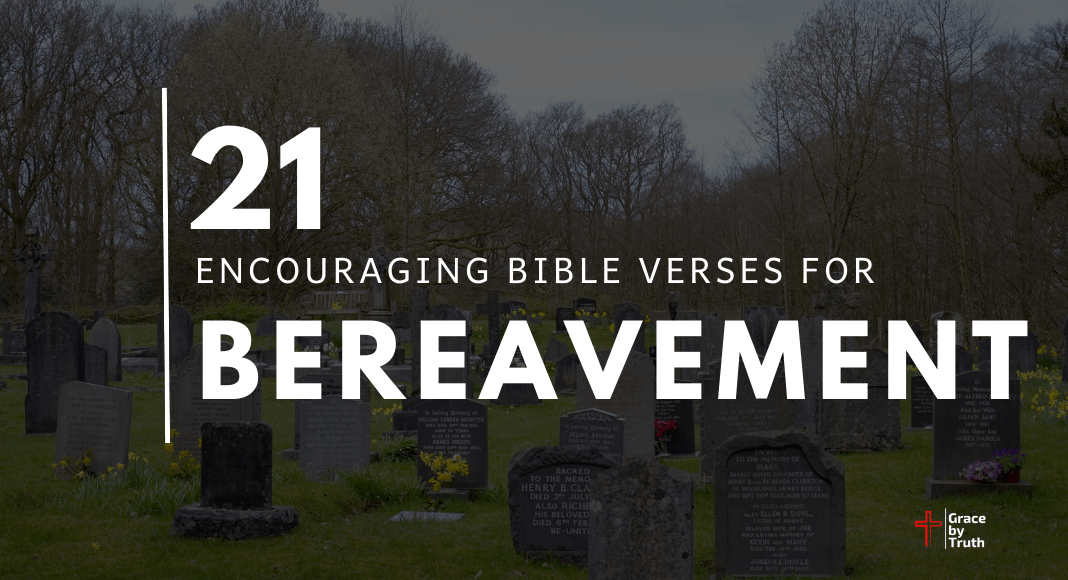Hebrews 5:11-6:12 and The Believer’s Loss of Rewards
Throughout the Church’s history, many controversies have arisen as a result of the third warning found in the sixth chapter of the book of Hebrews. The debate found in these controversies touches every aspect of the soteriological doctrine of eternal security, the preservation of the saints, and the believer’s loss of rewards. Although there have been many interpretations given to explain this passage, there are four views that hold prominence in Christian thought. They are the hypothetical view, the saved-lost view, the professors-not possessor’s view and the loss of rewards view. Because of the brevity imposed upon this paper as a result of course requirements, the only view that will be dealt with here in detail is the “loss of rewards view,” which the author personally holds to be the most Biblically correct view.
The “loss of rewards view” maintains that some of the recipients of the writer’s exhortation found in Hebrews chapters five and six are carnal Christians who are in danger of losing their rewards and inheritance because of their fleshly living. It will be demonstrated contextually and exegetically that losing salvation, professing salvation, or arguing hypothetically about loss of salvation is not the author’s intent or purpose for this warning passage. What will be demonstrated is that when one takes into account the overall theological context of God’s plan for salvation as a precondition for understanding the passage and the grammatical intent of the writer, the conclusion that consistently comports with the intent of the Hebrews author is the “loss of rewards view.”
The Immature Hebrews
To lay the foundation for this task, it must be determined to whom the writer of the Hebrews is warning. Hebrews 5:11-14 gives some indication as to the audience.
Concerning him we have much to say, and it is hard to explain, since you have become dull of hearing. For though by this time you ought to be teachers, you have need again for someone to teach you the elementary principles of the oracles of God, and you have come to need milk and not solid food. For everyone who partakes only of milk is not accustomed to the word of righteousness, for he is a babe, But solid food is for the mature, who because of practice have their senses trained to discern good and evil.[1]
In the context of this passage, the writer is instructing the Hebrew readers on the doctrine of Jesus’ Melchizedekian priesthood. However, the writer belays his instruction because of a perception problem on the part of his intended hearers. He observes that the doctrine of the Melchizedekian priesthood is a subject too complicated for his spiritually immature audience to understand. He also reveals, by way of presupposition and in his line of argumentation, the spiritual condition of the recipients. They are believers. They are Christians who are regressing in their sanctification process because of their unwillingness to grow. This is evident based upon his appeal for the audience to press on to maturity. Hodges states, “They had been Christians a long time…Others who had been in the faith less time than they should be profiting from their instruction. Instead they needed someone to instruct them again in the basics.”[2]
The author’s presupposition in formulating his argument is not that they are in need of spiritual growth. This is his argument. His presupposition is that they are already Christians because unbelievers do not have the rational faculties for discerning basic spiritual truth, let alone a complex theological doctrine such as the Melchizedekian priesthood.
This conceptual truth is clearly evidenced time and again elsewhere in Biblical theology, where Scripture teaches that the unbelieving man is spiritually dumb, blind, and dead and cannot discern spiritual matters. If this is the case, why then does the writer to the Hebrews labor in vain to instruct the spiritually dead on matters of living words? The only logical answer that comports with the Biblical doctrine of “radical depravity” is that they are not spiritually dead but only spiritually stagnate. They at least have the ability to understand the fundamental Biblical doctrines of the Christian life, which the writer refers to as milk. This also negates the professors and not possessor’s view by default unless one holds that a person can lose their salvation. To hold otherwise renders one’s position to be contradictory.
The Bible has clear instruction on the radical depravity of the natural man, not to mention the quagmire of other theological doctrines about the Christian life that would be affected if one held this view. The question becomes, if these are believers that the writer to the Hebrews has in mind, then what is it that he is warning them about in the following verses in chapter six? Is it the loss of salvation or loss of rewards and inheritance?
The writer begins in verses one and two of chapter six by telling the believers that they should be pressing on to maturity and leaving behind the A,B,C’s of the Christian faith. In verse three he writes “And this we will do, if God permits.” The question is what is it that the believers will do if God permits? The answer is press on to maturity. This is evident by the use of the third class condition of the word “if” in the Greek. The usage of the third class condition looks to the future but with some doubt. The comparable modern day vernacular would be “maybe you will or maybe you won’t.” What the writer is saying to the Hebrews is that the believers will press on towards maturity if God allows it. The underlying theological principle at work here is that if believers willfully regress in their sanctification process from a state of maturity to immaturity, God may allow them to stay in a state of immaturity as a form of temporal discipline. They will still produce fruit in their sanctification process. However, their overall growth continuum will be retarded.
This scenario would be akin to the middle-aged parents who discipline their twenty-one year old child because he volitionally lies around the house wearing nothing but soiled diapers and refuses to speak anything but baby gibberish. Since the twenty-one year old does not want to conform to the expected maturity level of all twenty-one year olds, his parents discipline him by locking him in his room. This is to ensure that the twenty-one year old will not present himself as someone who brings shame to the rest of the family or becomes an inherent danger to himself.
This disciplinary concept is found in other epistles as well. In 2 Timothy, where Paul is instructing Timothy on how to deal with brethren who are in opposition to the truth, he writes,
with gentleness correcting those who are in opposition, if perhaps God may grant them repentance leading to the knowledge of the truth, and they will come to their senses and escape the snare of the devil, having been held captive by him to do his will.
What Paul is stating is that members of the body who are in opposition to the truth may be released from their current state of immature thinking and living if God grants them repentance. Here again is the third class condition of the use of the word “if.” That is, maybe God will or maybe He will not.
If He does, the result will be that the believer will be led to the experiential knowledge of the truth, he will come to his senses, and he will escape the snare of the devil having been held captive by him in his thinking and in his actions. If God does not allow repentance in the believer’s life, then the believer will be left to himself and under temporal discipline. He is still saved from the penalty of sin but he will lose the joy of experiencing the blessings of the Christian life and forfeit rewards and inheritance in the future. This is why the New Testament makes so many appeals to the believer’s volitional choice in matters of spiritual maturity. Consider some of the Bible’s admonitions regarding one’s volition and goals.
“Be diligent to present yourself approved to God as a workman who does not need to be ashamed, handling accurately the word of truth” (2 Timothy 2:15). “I, therefore, the prisoner of the Lord, entreat you to walk in a manner worthy of the calling with which you have been called” (Eph.4:1). “Work out your own salvation with fear and trembling” (Phil. 2:12).
The appeal to one’s volitional choice is always with a view to bring about spiritual maturity and rewards. To obey these biblical directives expresses faith and commitment. This is why at the judgment seat of Christ; judgment will be rendered “according to what he has done, whether good or bad.”[3] It would seem that this principle is the sole basis for the writer’s appeal to the Hebrew Christians in this warning passage. If they refuse to change their thinking and grow, then the writer states that negative consequences will follow. He then goes on to describe these regressive conditions in the following verses as he warns these Christians about the alternative to pressing on to maturity.
An Exegetical Analysis of Hebrews 6:4-6
In 6:4 the conjunction “For” connects the previous admonishment to the following warning about falling away in verses 6:4-6. These slack believers are described by five participles, which are governed by the article “those who.”[4] This is important to the “loss of rewards argument” because of the use of the single article, which indicates that “only one group of individuals is in view”[5], namely believers who have digressed in their spiritual growth and are in jeopardy of losing their inheritance. These individuals are described as having:
- Once been enlightened (6:4a)
- Tasted of the heavenly gift (6:4b)
- Been made partakers of the Holy Spirit (6:4c)
- Tasted the good word of God and the power of the age to come (6:5)
- Fallen away (6:6)
Having Once Been Enlightened
When the writer tells his readers that they have once been enlightened, what he is referring to is that moment in time when they were regenerated. This is made evident by the use of the verb phōtizō “enlightened” which means to bring to light or illuminate. Another point that supports this fact is the use of “hapax,” which gives some indication as to the extent of their enlightenment. For example, this word is used fifteen times in the New Testament (eight of these in Hebrews) and it is a combination of eis “one,” and pegnumi, meaning “bring together or make firm.” Its central meaning includes “numerical singularity and completeness which needs no additions.”[6] In other words, it the author appears to be referring to the mind of the Hebrews as having “once” been enlightened or illuminated to the truth of the gospel, as a result of instruction.
The use of this verb helps to clarify this point more vividly in Hebrews 10:32 where the writer states, “But remember the former days, when, after being enlightened, you endured a great conflict of sufferings.” When taking the clear implication of these verses in conjunction with each other, the logical conclusion appears to translate the position of the author’s meaning to be the Hebrew’s salvific experience. This would appear to structure the author’s intent as referring to regeneration or the point being made and not a mere cognitive recognition of the gospel truth on the part of the recipients.
This further becomes evident when comparing these verses with Hebrews 5:12, where the writer is rebuking these same individuals for having forgotten the things they once learned. The ramification of this rebuke logically narrows the scope of the argument down to his audience having been regenerated, because they were already enlightened by this spiritual truth in order to be regressing from it in their temporal experience. It can be concluded that it is highly unlikely that these are mere “professors of faith” instead of born again believers.
Tasting the Heavenly Gift
The second observation that the author makes regarding the spiritual state of the Hebrews, is their once having tasted the heavenly gift. The verb geuomai “tasted” has to be understood in the context of the meaning of “coming to know something.”[7] This is confirmed by its context in a similar passage found in Hebrews 2:9 where the writer states that Christ “tasted” death for everyone. It would be fallacious on the part of any theologian to equate Jesus’ death as merely something that He sampled, instead of something that He experienced in its fullest measure as reality.
The writer then goes on to say what it is that these Hebrews tasted. He tells them that they have tasted of the heavenly “gift.” The word “doreas” is used in the New Testament to always describe a gift or blessing from God.[8] However, some scholars still debate what this heavenly gift is in reference to this passage. Some say it is referring to “the blessings and physical benefits of knowing the promises of the OT and how they were fulfilled in the person and work of Jesus Christ and the new covenant.”[9] Others say that since enlightenment suggests baptism, tasting the heavenly gift may suggest the partaking of the Eucharist.[10] These observations may be viable; however, there is no explanatory genitive in the verse to determine its exact meaning with clarity. We are therefore left only with the context of the word’s usage to determine the meaning of what the heavenly gift implies.
In this particular context, the word “doreas” or gift refers to something that is from God but it is also something that is unmerited or received without payment. This clearly places an emphasis on its “grace” like characteristic that comes from God alone. Since this is the case, true salvation is the most viable answer that theologically comports within the context of the author’s progressive argument. To assume otherwise introduces an unintended theological speculation into the meaning that diminishes the true salvific experience that all believers have come to “taste.”
Second, If the gift is anything other than true salvation, such as a mere cognitive knowledge of the person or work Christ or partaking in any existential experience, it causes a rift in the epistemic lines of distinction between what believers can know to be true. It also renders the unbeliever with the ability to possess spiritual insight into the Scripture, which distinctly contradicts what the Bible teaches about the nature of the unregenerate man. Unbelievers do not have the capacity to understand the spiritual implications of the Biblical text. Viewing this participle in any other context other than the “loss of rewards” position leaves the passage exegetically unsound and interrupts the cogency of the author’s argument.
Partakers of the Holy Spirit
The next observation the writer makes in regards to the participle, “have been made partakers of the Holy Spirit” clearly indicates that the Hebrew audience has become mutual sharers of the Spirit’s divine essence. Scholars who disagree with this view cite that translating this participle in this manner may not be the most correct practice. They would argue that the participle may simply suggests that the Spirit “enlightens minds and brings conviction of sin and some to understand the gospel, but yet it falls short of salvation”[11] and does not mean that the Hebrews are truly saved.
Again, if taking the participle by itself this could be a viable translation. But it should be noted that the writer is emphatic in his eschatological usage of the word “sharers.” If he is simply arguing about their soteriological condition, then why does he, in previous passages, such as Hebrews 3:1 and 3:14, describe his readers as sharers of the “heavenly calling,” and being “partakers of Christ?” Certainly unbelievers do not participate and share in the future millennial blessings that Christ has for his people.
It is unreasonable to think that the writer would seemingly go out of his way to describe something that does not have the possibility to become a reality. Those who are “professors of faith” and not “possessor’s of faith” have no part of future rewards or inheritance. Neither do those who can apparently lose their salvation. The proper method of interpreting the participle here must be taken in light of the other four and in the context of the warning passage itself. The only alternative comports with the writer’s theme and his use of this participle is the “loss of rewards view.” Only believers can share in or forfeit the blessings of the future millennial kingdom.
Tasted the Good Word of God and the Powers of the Age to Come
The last two prepositional phrases in verse five are controlled by the participle “having tasted.” The difference between this phraseology and the participle in verse four is that the participle in verse four is referring to the spiritual realities of one’s position in Christ. In verse five it refers to the manifestations or out workings of the “good word of God” and the “powers of the age to come” in a believer’s temporal and future experiences.
The “good word of God” refers to the Hebrew believers having the benefits of God’s present instructions and teachings so that they could live in a right relationship with Him. This is implicit because of the writer’s previous admonishment that they should have already been to the point that they were teaching others the oracles of God. The author also tells them that they have tasted “the powers of the age to come.”
The writer’s use of this phrase immediately directs the readers to something that is a reality for them now and will be in the future. It appears that the author is referring back to the signs, wonders, and miracles in Hebrews 2:4 that they have already “tasted.” He is alluding to the “powers,” that they had already experienced and will experience in the future as part of the activities of the millennial kingdom. Pentecost suggest that these activities in “powers of the age to come” refers to the Old Testament promises of Ezek. 36:27 and Joel 2:28-29 where the Holy Spirit will indwell believers and empower them to be totally obedient to Christ.[12] The correlation between this future event and their present condition appears to be the point that the writer is trying to convey. Their experiential knowledge of this privilege is conditioned upon their pressing on to spiritual maturity. And this they will do, if God permits.
And Have Fallen Away
Up to this point in his line of argumentation, the Hebrew’s author has focused on the blessings that have been bestowed upon his recipients because of their relationship with God. The author now changes the mood of his argument from what they have gained to what they may lose. This is based upon the conjunction kai at the beginning of verse 6 which introduces the participle meaning of “and yet.”[13]
What the writer to the Hebrews is saying is that in spite of all these blessings that you have received from God, you have still parapiptō “fallen away.” The use of this participle means to “fall away” or “fall beside.” Since it is relatively unclear as to what it is specifically referencing, the previous historical use of the verb, along with context of its use in this passage, becomes the predominant factors in determining its clarity and meaning.
In classic literature, the term parapiptō “have fallen away” did have a moral sense of “to sin,” but it was generally used as a non-ethical term to intend “to be in error” or “mistaken.”[14] In the Septuagint for example, the verb is found in Esther 6:10 where it denotes a possibility of “falling short” of instruction. In Ezekiel 14:13; 15:8; 18:24 and 20:27, the Septuagint uses the verb parapiptein, which is a derivative of parapesontas, to describe Israel’s unfaithfulness to God. If this is the implication of what the writer is trying to convey in Hebrews 6:6, then it is clear that what the Hebrew Christians were falling away from was their confidence and experiential relationship with God. Their internal dullness became an outward manifestation of immaturity and this is what is being equated with “falling away” and not the loss of salvation.
It must also be added that the writer is not merely referring to this falling away as a hypothetical situation. This is because some of the Hebrews did actually fall away in their maturing process as a reality, which renders the “hypothetical view” as inconsistent. What the writer is saying is that these believers have drifted from the truth and are failing to press on to maturity. They had rejected their Christian experience and positional benefits and exchanged them for the practices of Judaism. In knowing this, the writer then proceeds into revealing the consequences of their actions, which included the impossibility of repentance.
The reality of impenitence in his argument appears to be a very real possibility, in that God may confirm them in their state of immaturity for having fallen away. When a believer gets to the point where he is spiritually dull and hard-hearted, he will not repent, even when confronted by another believer. This is confirmed by the Hebrew writer’s admonishment in 3:13 where he urges the readers to encourage each other daily so that they will avoid becoming insensitive to their spiritual condition.
The writer goes on to describe the reason why repentance is impossible for those who have “fallen away.” It is because they crucify and openly disgrace Christ. That is, Christians who deny Jesus in their thoughts, words, and deeds find themselves taking their stand along with those who put Christ to death on the cross. Since they wanted to go back to the practices of Judaism to avoid trials and tribulations, they are signifying an alliance with those that hated and rejected the Messiah. The writer makes it evident that the only option facing these individuals is judgment.
An Illustration from the Ground
In the writer’s closing remarks in verses Hebrews 6:7-8, he gives the readers a vivid illustration of the consequences of this judgment. He does so by using imagery from agriculture. In verse 7 he compares the vegetation produced from the rain soaked ground to be synonymous with the believer who obediently chooses to press on to maturity. The result is that a believer will receive a blessing from God. This interpretation is generally held by most expositors.
The crux of the debate comes into play based on the interpretation of verse 8, where the ground produces “thorns and thistles.” This is the negative side of the illustration. Grammatically, the “ground” of verse 7 is the antecedent of the participle “yields.” Therefore, what may be understood is that the same land is what is in view. The difference is the ground’s produce, namely “thorns and thistles.” This is the writer’s way of describing the dullness as defined in the later part of chapter 5. He is saying that spiritual immaturity produces thorns and thistles, which ends up being burned. The imagery of the metaphor being burned causes some exegetes to think that this verse refers to eternal judgment. To hold that position however, is to totally ignore the context of the author’s intent and pushes the illustration far beyond its meaning.
This can be determined by the common first century use of fire for clearing land of useless vegetation so that something more productive or lucrative may be yielded. The fire would only destroy the worthless vegetation and not the soil’s usefulness. The correct interpretation of the writer’s illustration then, would be that God is going to remove or burn the uselessness of the disobedient believers by means of some temporal judgment.
This is similar to the image that Paul paints for the Corinthians as he describes the bema. This judgment will be when Christ will test, evaluate, and determine all of the useless motives, words, and deeds. Paul states in 1 Cor. 3:15, “If any man’s work is burned up, he shall suffer loss; but he himself shall be saved, yet so as through fire.” Although the Hebrews writer is dealing more with a temporal judgment in 6:8, there is definitely an eschatological presence of rewards and loss of rewards in his illustration. In either case, the soteriological condition of the readers in Hebrews and in Corinthians is presuppositionally the same for both Paul and the Hebrew’s author. They are writing about believers.
Press on to Your Rewards
It has often been conveyed in contemporary culture that when giving bad news, one should try to “always leave them smiling.” If there was ever an origin offered for this practice, someone should have looked to the Hebrew writer’s closing comments in this warning passage. The writer passes the admonition to offer words of encouragement.
For example, in verses 9-12, the writer encourages his readers by stating that he is assured “of better things concerning you.” That is, although he had addressed them in harsh tones up to this point, he is certain that they will press on maturity and bare “good fruit.” This becomes evident in verses 10-11 where the writer reveals their love for God by them having had ministering to His saints and their call to resumed diligence. Resumed perseverance is the essential common denominator for the basis of future rewards and an inheritance, and it is evident that the writer is at least confident about one thing. These Christians will persevere to the end.
Summary
Although many controversies have arisen over the warning passage in Hebrews 6, the crux of the author’s argument stems from the desire of wanting to move these Hebrew believers from a state of immaturity to maturity. He does this by using a real warning, given to real people who are facing very real situations.
The view maintained in this exercise is that recipients of the exhortation found in Hebrews chapters five and six, are carnal Christians who were in danger of losing their rewards and inheritance because of fleshly living. It has been demonstrated contextually and exegetically that losing salvation, professing salvation, or arguing hypothetically about the loss of salvation is not the author’s intent in this fourth warning. His purpose seems to be an exhortation, and in this admonishment he conveys to his readers his desire for them to take hold of that which they are in danger of forfeiting, namely their rewards and inheritance. By taking into account the overall theological context of God’s plan for salvation as a precondition for understanding this passage along with the grammatical intent of the writer, the conclusion that appears to consistently comport with the intent and message of the Hebrews author is the “loss of rewards view.”
Sola Deo Gloria
BIBLIOGRAPHY
Bartels, K.H. “One.” New International Dictionary of New Testament Theology. Ed. C. Brown, 3 vols. (Michigan: Zondervan) 1975.
Bauer, William. A Greek Lexicon of the New Testament and Other Early Christian Literature. Trans. William F. Arndt and F. Wilbur Gingrich. (Chicago: University of Chicago Press) 1957.
Bruce, F.F. The Epistle to the Hebrews. (Grand Rapids: Eerdmans) 1964.
Hodges, Zane. “Hebrews.” The Bible Knowledge Commentary. Ed. John F. Walvoord and Roy B. Zuck. (Colorado: Chariot Victor Publishing) 1983.
Hurtado, Art. “Are The Persons Described In Hebrews 6:4-6 Christians?” International School of Theology (1995): 18 pp. Online. Internet. 16 July 2001. Available: http://www.leaderu.com/isot/heb2.html
Leafe, G. Harry. Running to Win: A Positive Biblical Approach to Rewards and Inheritance. (Houston: Scriptel Publishers) 1992.
Oberholtzer, Thomas. “The Thorn-Infested Ground in Hebrews 6:4-12.” Biblio Thecasacra 145 (1988): 319-328.
Pentecost, J. Dwight. A Faith That Endures. (Grand Rapids: Discovery House) 1992.
Robertson, A.T. A Grammar of the Greek New Testament in Light of Historical Research. (Nashville: Broadman Press) 1930.
Sullivan, Steve. Warning: Perseverance or Apostasy- Part II Hebrews 6:4-8. Ms. 5pp. College of Biblical Studies. Houston, Texas.
[1] Unless otherwise stated, all Scripture quotes are taken from the New American Standard Version of the Bible.
[2] Zane Hodges, “Hebrews,” The Bible Knowledge Commentary, ed. John F. Walvoord and Roy B. Zuck (Colorado: Chariot Victor Publishing, 1983), 792.
[3] G. Harry Leafe, Running To Win: A positive Biblical Approach to Rewards and Inheritance (Houston: Scriptel Publishers, 1992), 82.
[4] Thomas Oberholtzer, “The Thorn-Infested Ground in Hebrews 6:4-12.” Biblio Thecasacra 145, (1988): 321.
[5] A.T. Robertson, A Grammar of the Greek New Testament in Light of Historical Research (Nashville: Broadman Press, 1930), 777.
[6] K.H. Bartels, “One,” New International Dictionary of New Testament Theology, ed. C. Brown, 3 vols. (Michigan: Zondervan, 1975), 2:716.
[7] William Bauer, A Greek Lexicon of the New Testament and Other Early Christian Literature, trans. William F. Arndt and F. Wilbur Gingrich (Chicago: University of Chicago Press, 1957), 156.
[8] Art Hurtado, “Are The Persons Described In Hebrews 6:4-6 Christians?” (International School of Theology, 1995, accessed 16 July 2001); available from: http://www.leaderu.com/isot/heb2.html
[9] Steve Sullivan, Warning: Perseverance or Apostasy- Part II Hebrews 6:4-8 (Unpublished Ms., College of Biblical Studies, 2000), 5pp.
[10] F.F. Bruce, The Epistle to the Hebrews (Grand Rapids: Eerdmans, 1964), 120-121.
[11]Sullivan 4.
[12] J. Dwight Pentecost, A Faith That Endures (Grand Rapids: Discovery House, 1992), 106.
[13] Hurtado 9.
[14] Ibid., 9.
ABOUT
Grace by Truth is known for delivering the precise and deep study of biblical truth in service to each other and the church.
CONTACT
CURRENT STUDY
MORE THEOLOGY ARTICLES
25 Inspirational Bible Verses About Friendships
The Bible has a lot to say about walking with a brother or sister in Christ. From helping you to learn how to choose the right friend or instruct you on how to maintain beneficial relationships, there are many things you can learn about friendships. These...
25 Fantastic Bible Verses for Engaged Couples
Getting married can be one of the biggest milestones of our life. Finding a person you wish to spend the rest of your life with can bring you great levels of joy and peace. These fantastic bible verses for engaged couples will remind you of Gods' everlasting presence...
21 Encouraging Bereavement Bible Verses
Losing a loved one can leave us feeling devastated and alone. Whether it was a traumatic incident or expected illness, death can launch us into a deep emotional state of grief. These encouraging bereavement bible verses will help to remind you of the Lords presence in...







